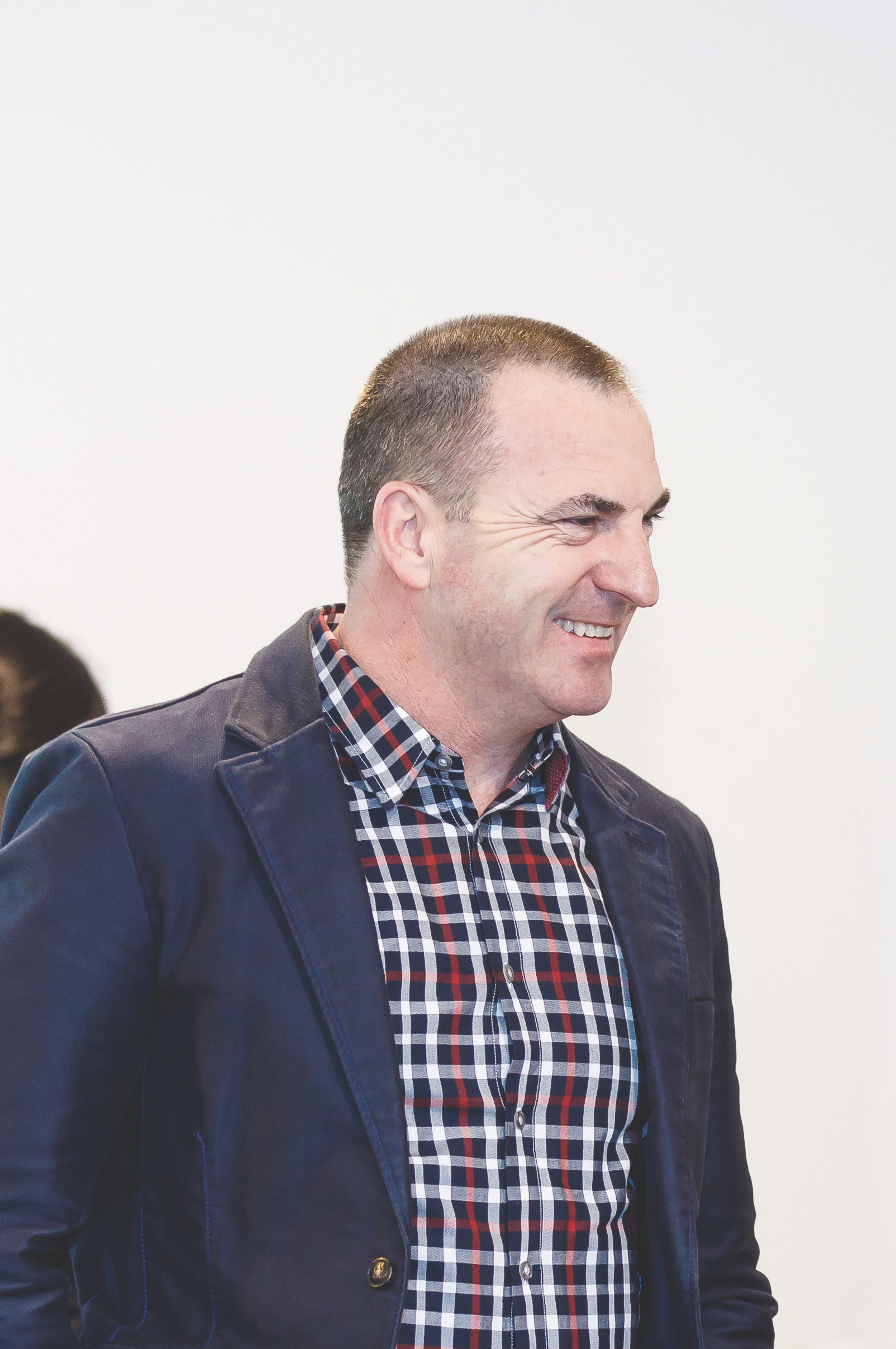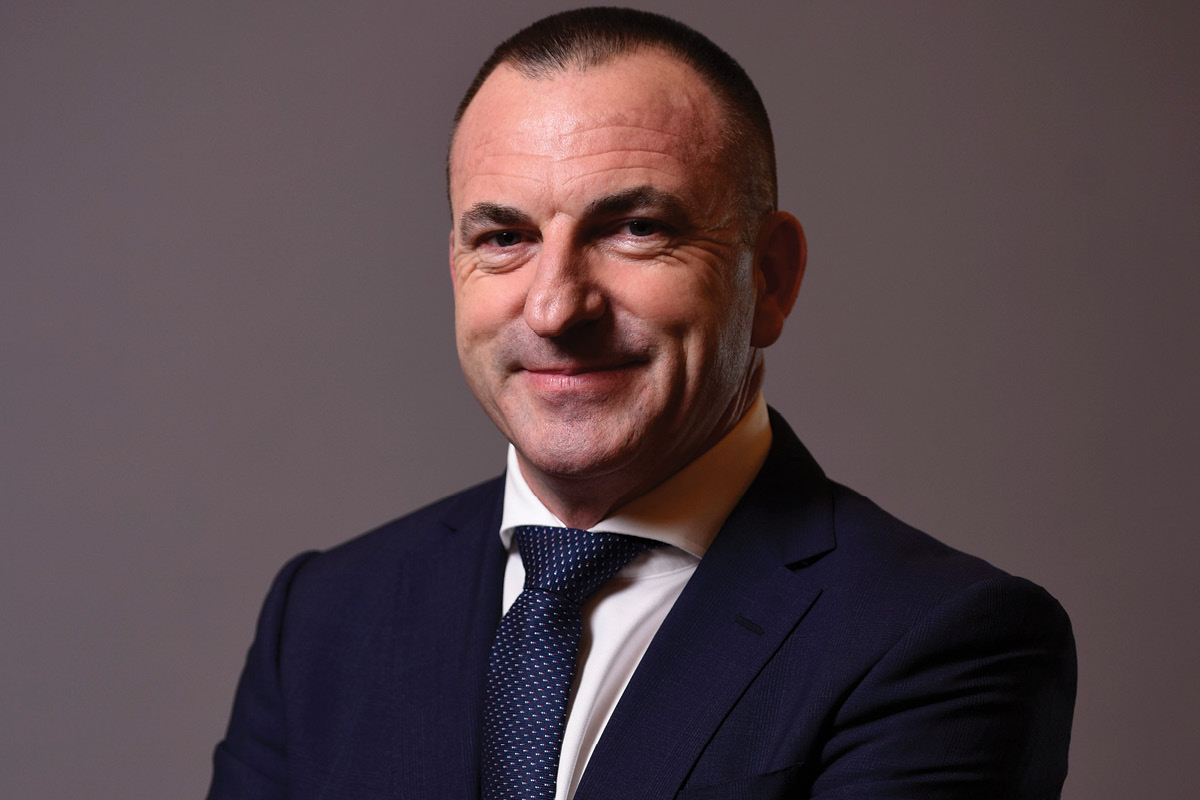For Healthe Care CEO and Managing Director Steve Atkins, the best decision he made in his professional life was taking the risk with his colleagues to establish a private healthcare services group, despite having little capital and no formal financial backing.
After completing a Bachelor of Nursing, a Master of Business Administration and a Graduate Diploma in Occupational Health and Safety, Steve got involved in sports medicine and workplace health. He then progressed to become CEO of several private hospitals.
In 2005, he co-founded Healthe Care with the acquisition of five hospitals from Ramsay Health Care – the private healthcare operator founded by the late healthcare and media magnate Paul Ramsay. At the time, Steve served as COO, while his colleagues Geoff Sam and Ben Thynne were Chairman and Managing Director, respectively.
“I had worked with Geoff and Ben when I was CEO of Brisbane Waters Private Hospital,” Steve tells The CEO Magazine. “Back then, it was owned by Nova Health. Ben resigned from Healthe Care in 2008 and the board appointed me as CEO and Managing Director. I have remained in the position ever since.”
While Healthe Care currently holds the title as the third-largest private hospital operator in Australia, its journey to success was riddled with challenges that Steve and his team worked hard to overcome. “Initially, as a fledgling group, the challenge was trying to negotiate with health insurers for appropriate hospital fees and better prices from suppliers,” Steve explains.
“Then the global financial crisis hit so we restructured and sold our building assets to property trusts, which freed up cash to invest in our clinical services. The property trust partners invested in refurbishment and development of new beds and facilities.”
A string of acquisitions
The company continued to persevere, and by 2015 it had acquired 19 hospitals and healthcare facilities. That same year it was bought out by major Chinese pharmaceutical company Luye Life Sciences Group in a massive A$938 million deal.

Founded in 1994, Luye Life Sciences has three main divisions: Luye Pharma, which focuses on the research and design, manufacture and sale of pharmaceuticals; Luye Medical, which provides medical services across its brands in Singapore, China and South Korea; and Luye Investment, which secures new businesses that develop antibody drugs, regenerative medicine and molecular diagnostics.
Prior to the acquisition, Healthe Care’s management team travelled to China seven times and spent a lot of time with Luye Medical’s management team where it was impressed by the Chinese company’s commitment to fund its expanding healthcare services.
Steve added that the final decision – whereby Luye Medical became owner and operator of Healthe Care – was made after an exhaustive sale process that involved more than 30 registered bidders.
After securing a significant financial backing, Healthe Care went on to acquire Abbotsford Private Hospital in Perth – the state’s only private hospital for the treatment of addictions and mental health. It then secured three hospitals in the New South Wales Illawarra region – Shellharbour Private Hospital, South Coast Private Hospital and Wollongong Day Surgery – from Evolution Healthcare in an A$53 million settlement.
In May 2017, it undertook another major acquisition; gaining a portfolio of 13 hospitals, day surgeries and rehabilitation centres from Pulse Health for A$155 million. This included Bega Valley, Gympie, Forster and Hirondelle private hospitals as well as Healthe Care’s first New Zealand-based asset, Boulcott Hospital. The company currently has 37 health facilities, more than 7,500 employees and 2,500 beds.
Measuring patient outcomes
Steve bases Healthe Care’s success on good patient outcomes that can be measured. “It is the fundamental principle of patient-centric, value-based care,” he says. Steve adds that patients have more knowledge and higher expectations than ever of hospital care, while at the same time private health insurance in Australia has increased.
As a result, the company has heavily invested in upgrades and improvements to all its locations. These include the A$10 million expansion and refurbishment of Brisbane Waters Private Hospital; the construction of an endoscopy centre at Gosford Private Hospital; and The Valley Private Hospital’s A$110 million redevelopment, whereby it became the first hospital in Victoria to be equipped with a robot to assist with spinal fusion surgery.
Taking on new technologies
Steve highlights that constant innovation and technology “is a given” in healthcare and the company has a process for evaluating and introducing this into its facilities. “There are many clinicians, researchers and medical equipment supply companies coming up with new technologies,” Steve says. “We tend to be guided by our clinicians with the introduction of new technology.”
For example, in January 2017, the first computer-operated shoulder replacement technology was used at the company’s Hurstville Private Hospital. Conducted by Clinical Associate Professor Mark Haber, the system used computer-assisted orthopaedic surgery (CAOS) to accurately place the shoulder replacement parts.
The Australian Orthopaedic Association National Joint Replacement Registry notes that about 10% of patients who get shoulder replacements require revision surgery after 10 years mainly due to misalignment of the components or premature wear.
In Australia, there are two main techniques used for shoulder replacement. The first involves a computed tomography (CT) scan of the shoulder followed by surgery, where the surgeon places the prosthesis into the joint by sight.
The second requires the development of a patient-specific instrument guide (a ‘jig’) which helps in inserting the implant. However, the latter is not the preferred option as the guide takes up to four weeks to make and is bulky to use during surgery. Additionally, adjustments cannot be made intraoperatively if the CT scan is inaccurate or if there is some other complication.
Therefore, the CAOS technology aims to improve patient outcomes over 10 years by 30%–50%. The process came as a result of advancements in hip and knee replacement technology and it is smaller and more compact for use in surgery.
‘It’s personal’ at Healthe Care
Steve emphasises that the company’s culture is based around empowering its staff and managers, which will in turn provide a better service for patients. “Our message is ‘It’s Personal’,” he explains.
“We expect the managers of each of our facilities to treat it as if it’s their business – to own it – and we will reward them accordingly. A positive, can-do culture is always led and driven by inspired leaders. That’s what we try to cultivate.”
A positive, can-do culture is always led and driven by inspired leaders.
Healthe Care’s values include having a transparent work environment, where everyone is treated with respect, and supporting a healthy work–life balance with flexible work arrangements. This links to Steve’s belief in the importance of family and friends. He mentions how his own family constantly inspires him: “They keep me focused on what is important,” he notes. “And the principles of a quality family life are very similar to the principles of a successful business.”
To further acknowledge its staff, Healthe Care, together with superannuation fund HESTA, holds an annual Innovation and Change Creates New Value Awards ceremony. The event recognises individuals and teams who have developed innovative solutions for the medical industry.
Along with its employees, Healthe Care also acknowledges the support it receives from its suppliers. “We work with our partners on new, innovative ways that goods or services can be provided,” Steve says.
“We consider our property owners such as Australian Unity and Vital Healthcare and medical consumable suppliers like Medline to be our partners in the provision of the best facilities and best patient care possible.”
There are many opportunities emerging in the healthcare sector.
Looking ahead, Healthe Care aims to expand its reach both in Australia and overseas. “There are many opportunities emerging in the healthcare sector around integration of hospital-based care and services provided in the community – essentially a hub-and-spoke approach,” Steve says. The company has already established a team in Asia to seek more opportunities and has expansion plans with Luye Medical in Singapore and Korea.

